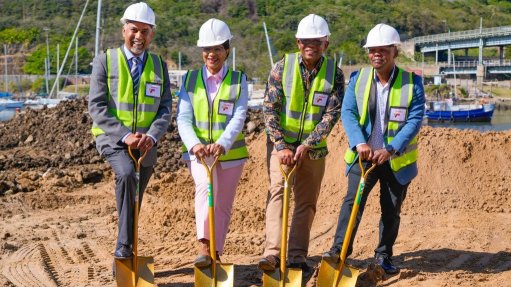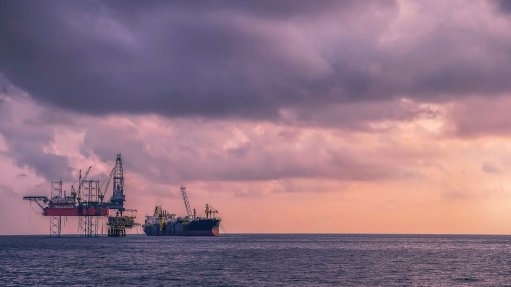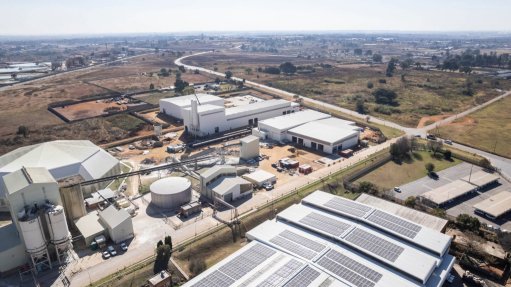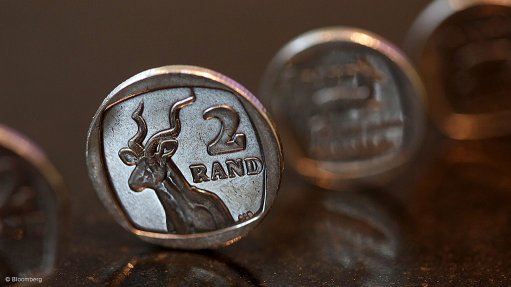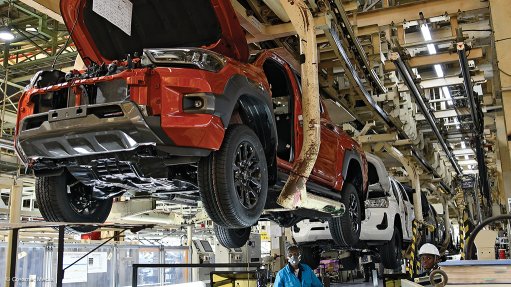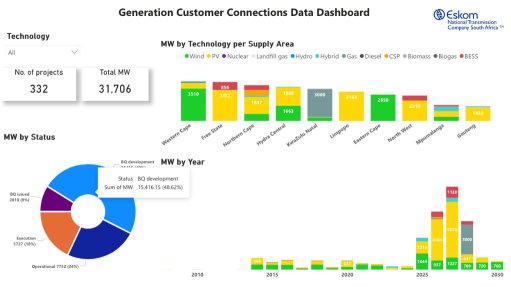The Case for Large Nuclear in South Africa: An Imperative for a Stable Energy Future
This article has been supplied.
By Gaopalelwe Santswere, the Deputy President of Nuclear Industry Association of South Africa (NIASA)
When discussing nuclear power in South Africa, many advocate for a utopian future powered solely by wind and solar energy. While renewables are important, their limitations must be acknowledged. Industrial economies cannot run on renewables alone, and South Africa is no exception.
Renewable energy sources like wind and solar are often seen as cheap and quick to deploy. However, this cost-effectiveness is misleading. In 2017, the anti-nuclear lobby opposed the alleged trillion-rand investment for 9,600 MW of nuclear power capacity on grounds that it was too expensive. Now, the Just Energy Transition Plan promises less than half of that capacity at nearly twice the cost, between 1.5 and 1.9 Trillion Rands guaranteed by the National Treasury.
The main drawback with renewables as the national economy “engine” is their intermittency. Solar energy depends on sunlight, which is unavailable at night and can be hindered by clouds. Wind energy relies on sufficient wind speeds, which fluctuate. Even hydropower is becoming less dependable due to climate change.
Many countries recognize the limitations of renewables and the critical role of nuclear power. France generates over 70% of its electricity from nuclear energy, providing a stable, low-carbon power supply. The United States, despite its substantial renewable capacity, relies on nuclear power for around 20% of its electricity. These examples highlight the importance of nuclear power for energy reliability, security and sustainability.
Intermittency also poses challenges for power grid management. Advanced energy storage systems, which might never fully materialize, are needed to balance supply and demand. Current energy storage solutions are insufficient for compensating for renewable variability. Large-scale battery storage is expensive and has environmental impacts due to the materials required. Moreover, storage solutions cannot provide power for extended periods during prolonged cloudy or windless days.
Countries like Australia, heavily invested in renewables, still struggle with intermittency. They rely on natural gas and coal to stabilize the grid when renewable generation falls short. This underscores the need for a reliable baseload power source that renewables alone cannot currently provide. Hybrid energy systems, combining intermittent sources with continuous ones like nuclear, are essential.
Capacity factor, the ratio of actual output to potential output over a period, is another critical measure where renewables fall short. Nuclear power operates at about 90% capacity factor, whereas solar and wind technologies typically achieve less than 30%. This disparity underscores why an industrial economy cannot rely solely on renewables.
Germany, often hailed as a renewable energy leader, offers South Africa a case study. By 2050, South Africa must decommission 80% of its baseload capacity as aging coal power plants retire. Coal currently accounts for some 80% of South Africa's electricity. Germany's ambitious Energiewende policy aimed at transitioning to renewable energy pushed the country to shut down baseload power sources – coal and nuclear.
Today, Germany's energy transition is increasingly seen as a failure. Despite significant investments, possibly over 500 Billion Euros, Germany faces challenges in maintaining a stable, affordable energy supply. The country has increased reliance on coal and natural gas to compensate for renewable intermittency. Germany is in a fortunate position of being part of the EU Power Pool where they can import reliable nuclear power from France or coal power from Eastern Europe. This reality underscores the need for a balanced energy mix.
However, turning to natural gas, as Germany did, is not viable for South Africa. Importing natural gas at spot prices leads to unstable tariffs. Gas prices are inherently volatile and expensive, posing a risk to our economy. South Africa cannot afford long-term reliance on natural gas imports.
Nuclear power is a viable and necessary option for South Africa. Beyond reliability and environmental friendliness, nuclear power offers significant opportunities for localization. South Africa has the skills and expertise to develop a robust nuclear industry. Recently, South Africans worked on the UAE's Barakah nuclear power plant, demonstrating their capabilities.
Investing in nuclear power ensures a stable, reliable energy supply, stimulates local industries, creates sustainable jobs, and drives economic growth. Nuclear plants have long lifespans, typically 40-60 years, sometimes up to 100 years, providing a long-term energy solution.
Nuclear power is also a practical solution from an economic standpoint. While the initial investment is substantial, long-term benefits far outweigh costs. Nuclear plants have low operational costs and provide stable electricity, insulated from fossil fuel price volatility. Economic analysis reveals nuclear power can be cost-competitive with other electricity generation forms. The levelized cost of electricity (LCOE) for nuclear, including construction, operation, maintenance, and decommissioning, can be lower than that of natural gas and coal when considering externalities like carbon emissions. Nuclear power's ability to provide continuous, reliable electricity enhances its economic attractiveness. Advances in nuclear technology, like small modular reactors (SMRs), promise even more cost-effective, flexible options for future deployment.
Nuclear power is a low-carbon energy source, essential for mitigating climate change. Unlike fossil fuels, nuclear power generation does not produce greenhouse gases during operation. This makes it crucial for reducing carbon emissions and combating global warming. Additionally, nuclear power has a smaller land footprint compared to renewables. Large solar farms like the 250 MW in North West referred to by the President during the opening of Parliament and wind turbines require vast land areas, impacting local ecosystems and biodiversity. A typical example recently Italy has barred all solar project being built on farms to protect the agricultural sector. In contrast, nuclear plants generate significant electricity from a relatively small area, making them more land-efficient.
Safety concerns have long been a barrier to nuclear adoption. However, modern reactors are designed with advanced safety features, significantly reducing accident risks. The nuclear industry has learned from past incidents, leading to improved reactor designs and stricter safety regulations.
South Africa must adopt a balanced energy strategy incorporating a mix of renewables and reliable baseload power sources. Nuclear power stands out as a crucial component. It offers a stable, economically viable, and environmentally responsible solution to our energy challenges. Embracing nuclear power secures our energy future, paving the way for sustainable development and economic prosperity. The journey towards a sustainable energy future requires informed, pragmatic choices. South Africa must leverage its expertise, resources, and strategic advantages to develop a robust nuclear power industry. This ensures a stable, reliable energy supply, driving economic growth and improving quality of life for all South Africans.
In conclusion, while renewables are essential, they cannot replace the need for a stable baseload power source. Those who suggest otherwise are either misinformed or misleading the public. Large-scale nuclear power is a viable, necessary solution to South Africa’s energy challenges, offering economic, environmental, and social benefits. It's time to embrace nuclear power as a cornerstone of our energy strategy, ensuring a sustainable and prosperous future for generations to come.
Article Enquiry
Email Article
Save Article
Feedback
To advertise email advertising@creamermedia.co.za or click here
Comments
Press Office
Announcements
What's On
Subscribe to improve your user experience...
Option 1 (equivalent of R125 a month):
Receive a weekly copy of Creamer Media's Engineering News & Mining Weekly magazine
(print copy for those in South Africa and e-magazine for those outside of South Africa)
Receive daily email newsletters
Access to full search results
Access archive of magazine back copies
Access to Projects in Progress
Access to ONE Research Report of your choice in PDF format
Option 2 (equivalent of R375 a month):
All benefits from Option 1
PLUS
Access to Creamer Media's Research Channel Africa for ALL Research Reports, in PDF format, on various industrial and mining sectors
including Electricity; Water; Energy Transition; Hydrogen; Roads, Rail and Ports; Coal; Gold; Platinum; Battery Metals; etc.
Already a subscriber?
Forgotten your password?
Receive weekly copy of Creamer Media's Engineering News & Mining Weekly magazine (print copy for those in South Africa and e-magazine for those outside of South Africa)
➕
Recieve daily email newsletters
➕
Access to full search results
➕
Access archive of magazine back copies
➕
Access to Projects in Progress
➕
Access to ONE Research Report of your choice in PDF format
RESEARCH CHANNEL AFRICA
R4500 (equivalent of R375 a month)
SUBSCRIBEAll benefits from Option 1
➕
Access to Creamer Media's Research Channel Africa for ALL Research Reports on various industrial and mining sectors, in PDF format, including on:
Electricity
➕
Water
➕
Energy Transition
➕
Hydrogen
➕
Roads, Rail and Ports
➕
Coal
➕
Gold
➕
Platinum
➕
Battery Metals
➕
etc.
Receive all benefits from Option 1 or Option 2 delivered to numerous people at your company
➕
Multiple User names and Passwords for simultaneous log-ins
➕
Intranet integration access to all in your organisation









